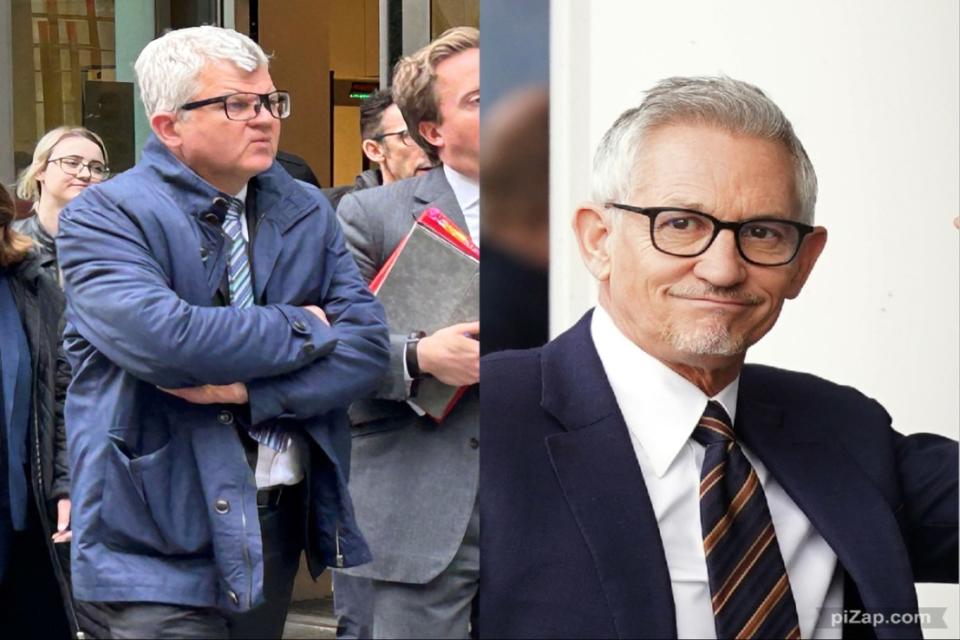British celebrities vs HMRC IR35: What is going on?

Yet another famous name has been in the headlines this past few weeks over issues with the tax authority over IR35. So what exactly is happening to British presenters, and why is HM Revenue and Customs (HMRC) after them?
BBC presenter Adrian Chiles has been in the spotlight over the past few weeks as the tax authority seeks to recover £1.7m in tax and national insurance contributions payments from his personal service company, Basic Broadcasting.
His company initially won its case at the First Tax Tribunal (FTT), but after a recent judgment, the FTT accepted HMRC’s appeal, which will see Chiles’ case proceed to the Upper Tribunal.
The most high-profile case in the saga so far was BBC sports presenter Gary Lineker’s battle with HMRC.
The tax authority went after the presenter for a total of £4.9m on over taxes on income from BBC and BT Sport from 2013–14 to 2017–18. He scored a victory earlier this year when the FTT ruled in his favour.
Back in 2019, Lorraine Kelly, along with other TV hosts, including Eamonn Holmes and Kay Adams, also found themselves on the other side of the tax authority over IR35 issues.
What is IR35?
Adam Craggs, head of RPC’s tax disputes practice, explained: “IR35 refers to tax law in the UK which is designed to ensure that workers who are essentially employees pay the same income tax and national insurance contributions as direct employees.”
He added that these rules were designed to prevent: “The misuse of corporate structures and intermediaries, such as a personal service company, to reduce tax liabilities.”
As David Ashmore, employment lawyer at Reed Smith noted: “[The] legislation allows HMRC to look through sometimes complex corporate structures and to interrogate the reality of a situation”.
Tax partner at Ashurst, Nicholas Gardner, highlighted that HMRC has been actively investigating IR35 cases for some years, “with mixed success.”
“Whether the rules apply are highly fact specific and these investigations are time-consuming and cases can last for many years,” he added.
On the issues around IR35, Craggs noted that the intermediary used to be responsible for determining IR35 status, but since changes were made in April 2021, medium and large-sized businesses can be held responsible for ensuring compliance throughout their supply chain.
“IR35 has therefore been criticised for its complexity and the added burden it places on contractors and businesses who need to ensure that they are compliant with the legislation and that in doing so they avoid any penalties for getting it wrong,” Craggs added.
Why are celebrities facing issues with IR35?
Michael Hunt, partner at Herbert Smith Freehills, pointed out that there has been a spate of IR35 appeals to the Tax Tribunal concerning radio and television presenters, many of which have related to contracts with the BBC.
He explained: “How these rules should apply to radio and television presenters has been particularly contentious, with different Tribunals reaching different conclusions in cases which seem broadly similar.”
Hunt noted the tax agency appears “to be taking a rigid and broad approach to radio and television presenters.”
He added: “Perhaps encouraged by their success in a number of such cases (for example, those involving news presenters), have left it to individual presenters who disagree to test their facts in the Tribunal”.
As Ashmore stated: “The key question is whether a media presenter should be regarded for tax purposes as an employee of whoever is receiving their services (normally a broadcaster), even though the presenter is an employee of their own personal service company.”
The result can often be an enormous tax bill as defendants have to pay back taxes as well as any penalties and legal costs.
What happens at a Tribunal?
Celebrities pursuing the FTT route have found themselves in the media spotlight as the “taxpayer bringing the appeal has the burden of proof and will have an opportunity to call witnesses,” Hunt said.
He noted that the FTT would need to examine the terms of the actual contracts between the parties involved and decide the terms of the hypothetical contract between the individual presenter and the broadcaster or production company that used the presenter’s services.
“Given that IR35 involves a multi-factorial test, the facts are critical, and the FTT decision on the facts is of central importance. Appeals from a decision of the FTT are generally permitted only on a point of law,” Hunt added.

 Yahoo Finance
Yahoo Finance 